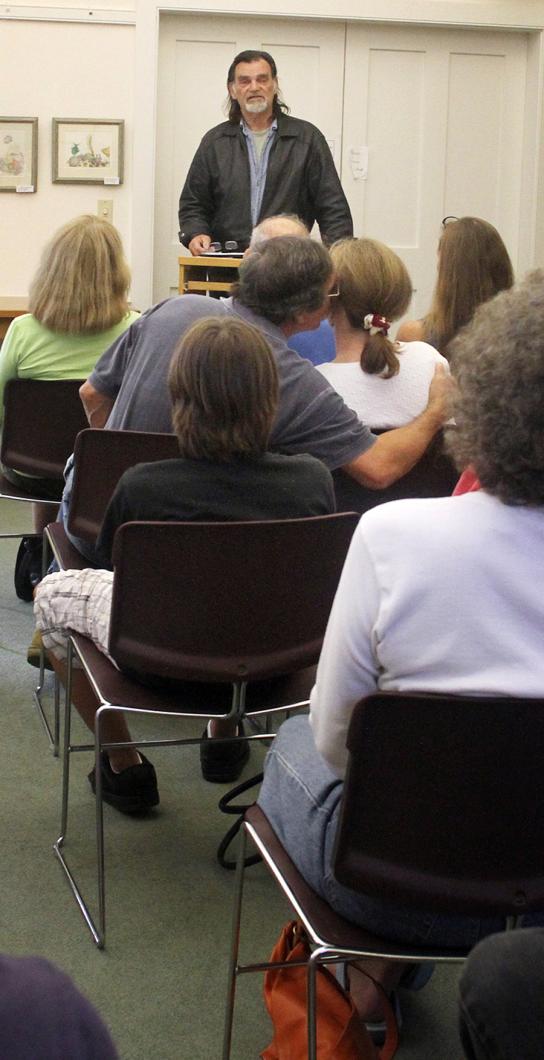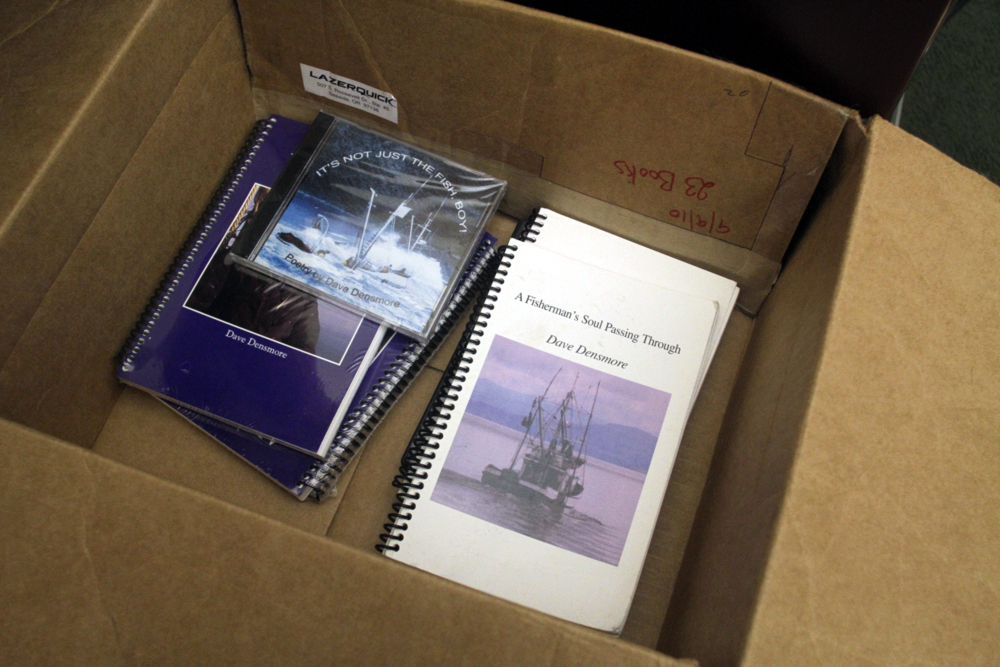Alaska-based fishing captain and poet Dave Densmore has seen it all in more than 50 years as a commercial fisherman, and on Wednesday evening, he shared it all with a standing-room-only audience at the Chilmark Free Public Library.
The program, made possible by the library and a grant from the Permanent Endowment for Martha’s Vineyard, was part of Mr. Densmore’s regular fall visit to the Vineyard. In addition to his public reading, Mr. Densmore also paid visits to all of the Island elementary schools, as well as the Martha’s Vineyard Public Charter School. His East Coast tour next returns to New Bedford, where he was a performer in the Working Waterfront Festival last week.
Mr. Densmore read from several of his works during the evening, packing a lifetime’s worth of stories into just over an hour. Though varied in length and style, the stories all touched on the various relationships — relationships with “those who stay behind” when fishermen go out to sea, fellow sailors, the sea itself, and, of course, fish — that enter the life of a seaman.
Mr. Densmore also addressed the oil spill in the Gulf, comparing it to the Exxon Valdez spill that occurred while he was fishing on the Kodiak Peninsula. Declaring that the effects will “be echoing for 50 years,” he implored the audience to begin taking action.
He acknowledged the importance of oil in his own life, but stressed that “we can do better” regarding cleaner energy sources.
“Technology needs to think of nature first,” he read, “or we’re going to kill ourselves.”
Addressing the spill follows the tradition of protest poetry Mr. Densmore has been penning since he first started writing in 1970s.
However, said Mr. Densmore in a postprogram interview with the Gazette, “I consider myself almost more of a storyteller than a poet,” demurring that his pieces lack the sophistication typically associated with poetry.
Yet the strength of Mr. Densmore’s pieces lies not in their use of iambic pentameter but rather in the raw infusion of self that is present in each one — an equally challenging technique for any author. The poems are driven by experience and accentuated by Mr. Densmore’s delivery; his voice rises and falls like ocean swells, pulling words along effortlessly. To listen to a reading is to feel as though you’re part of a conversation; even in those pieces that do employ a rhyming scheme, the rhyme seems secondary, a happy accident of storytelling. The effect is accentuated by the use of parentheticals and asides, which are built right into the piece.
“He’s so moving and brings you right into the story,” said audience member Mara Coleman after the performance.
Audience member Paul Ryan of Vineyard Haven agreed. “You can really feel his passion,” he said.
For Mr. Densmore, reading his poems “is not just a performance: I’m sharing myself.”
Part of being a good storyteller, he said, is being a good listener, a practice he believes is all the more important when speaking to school-age children.
“I am a firm believer that everybody has a story to tell,” he said.





Comments
Comment policy »